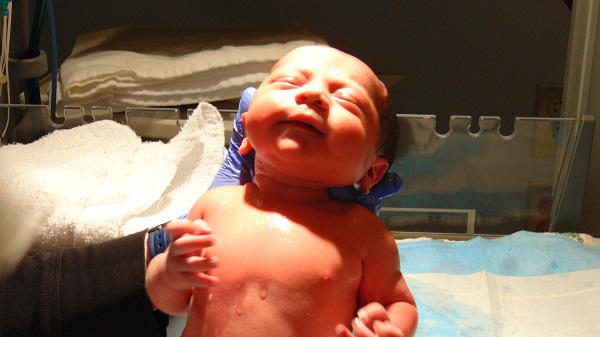You need a master’s in nurse-midwifery, which happens to be one of the highest-paying master’s degrees, if you want to become a Certified Nurse-Midwife (CNM). You don’t have to wait until it’s time to apply to graduate school to start working toward your dream career, though. There are plenty of activities you can do, either as an undergraduate student or after earning your bachelor’s degree, to help you become a midwife. Some of the activities recommended by the American College of Nurse-Midwives include volunteering in roles that are relevant to women’s health, shadowing and networking with CNMs and working in a women’s health care job function.
Volunteering in Some Aspect of Health Care
For many nurses and midwives, caring for patients isn’t just a career but also a calling. If a desire to help others is part of what drives your ambition to become a midwife, volunteering in the meantime may be a natural choice for you. The more relevant your volunteerism activities are to maternity care and women’s health care, the more these activities will be able to help you succeed as a midwife.
You might, for example, volunteer with advocacy groups that seek to implement evidence-based programs for improving maternal health outcomes or reducing the health care disparities that result in women of color receiving a poorer quality of care. Some aspiring midwives volunteer directly at community clinics, women’s health care centers and maternity wards, where they get a glimpse of the kind of work environment in which midwives find employment.
If you enjoy traveling internationally, embarking on a midwife internship abroad may offer the perfect blend of your personal and professional interests while helping you prepare for graduate school and a midwife career.
Shadowing and Networking With Established Midwives
IMAGE SOURCE: Pixabay, public domain
Before you’re qualified to provide nursing care yourself, you can learn more about what it’s like to be a midwife by shadowing and networking with active practitioners. Shadowing a midwife or another health care provider means observing them on-the-job so you can see firsthand what it’s like to work in this profession.
Networking doesn’t have to include shadowing, although it might. It could also take the form of informational interviews, mentorship relationships and informal conversations that allow you to ask questions about the work of a midwife and the process of becoming one. You may be able to make connections with midwives and other women’s health practitioners during your nursing studies, especially while gaining clinical experience. You can also connect with midwives through the American College of Nurse-Midwives.
Midwives aren’t the only health care professionals who can share insights that will be valuable to your career path. The American College of Nurse-Midwives also recommends networking with childbirth educators, doulas and nurse practitioners who specialize in women’s health.
Gaining Work Experience in Areas of Women’s Health Care
Nurse midwife isn’t an entry-level role. Before you start working toward your master’s degree in nurse-midwifery, you will likely need at least some amount of relevant work experience. Many nurse-midwifery programs, as well as other Master of Science in Nursing (MSN) programs, require applicants to have at least one year of work experience.
Since master’s in nurse-midwifery degree programs are typically meant for practicing registered nurses (RNs), it makes sense for aspiring midwives to seek out employment opportunities in areas related to midwife care. Many nurses who want to become midwives will gravitate toward roles in labor and delivery wards, where they provide nursing care for women who are preparing to give birth, in the process of having a baby or recovering from delivery.
A labor and delivery nurse fulfills a very different job function than what a nurse midwife does, but working in this capacity allows RNs to gain firsthand experience assisting in the birthing process. Labor and delivery nurses also have the benefit of working alongside CNMs and other childbirth providers with whom they can form mentoring relationships and talk about the profession. Labor and delivery has long been the preferred area of clinical experience for RNs planning to pursue a nurse-midwifery degree, but candidates with backgrounds in other areas of clinical experience can bring their own unique strengths to the profession, according to the Journal of Midwifery & Women’s Health.
Other relevant areas of clinical nursing practice include obstetrics (OB), which emphasizes nursing care throughout pregnancy and even prior to conception, and gynecology (GYN) nursing, which encompasses women’s reproductive health care more broadly. Naturally, these fields overlap to some degree, and many roles in the practices of obstetricians and gynecologists combine the OB/GYN specialties. You might also choose to work as a neonatal nurse if you want to become a midwife. Neonatal nurses focus on the care of newborn babies – a task that midwives perform, as well – but they may also assist new mothers in the delivery room and help moms hold and care for their babies after the birth.
Some graduate schools will accept alternative forms of experience for entry into a nurse-midwifery program, such as work as a doula who provides non-medical support to laboring mothers or work in a lactation support role, helping new moms get the hang of breastfeeding their babies.
Additional Resources
What Should I Study Before Going to Grad School to Be a Midwife?

